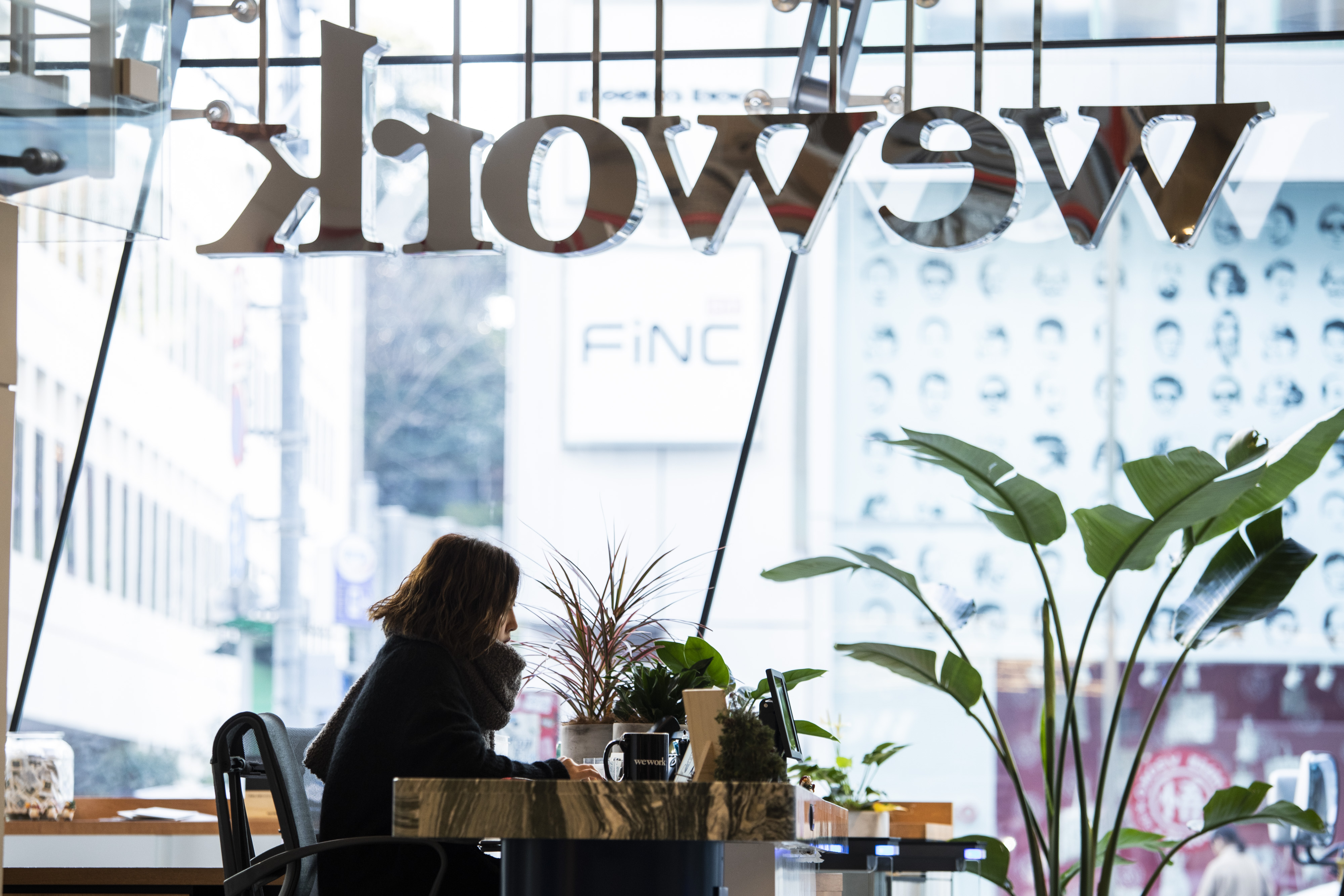I’ve Never Felt Professionally Lonelier Than I Did at a WeWork

Credit to Author: Katie Way| Date: Fri, 04 Oct 2019 19:13:00 +0000
“When you can mix community, culture, and energy into one thing, then you start getting the special experience… the one that we feel every time that we walk into a WeWork building,” then-CEO Adam Neumann told Vanity Fair in 2016.
Under the “Mission” section of WeWork’s website, community building is described as foundational to the company’s ethos: “When we started WeWork in 2010, we wanted to build more than beautiful, shared office spaces. We wanted to build a community… Community is our catalyst.” The young people stationed at the front desk of every WeWork I’ve ever been inside of (who are uniformly, comically, notoriously hot, like “ripped from a Google Image search for ‘hot person’” hot) aren’t called receptionists or administrators—they’re “community associates” who charge their laptops, field the occasional question, and smile while enduring half-hearted flirting from customers, or, I guess, from “community members.”
I spent six months with a $350/month hot desk membership that my then-employer paid for (duh). I got 24/7 building access, “guaranteed deskspace” in the building’s common areas, WiFi, printer access, free coffee, and beer on tap. During that time, community was not one of the rewards I reaped from the coworking space. I did meet a 30-year-old marketing guy who offered me $4,000 for a series of blog posts, on the condition that I quit the full-time freelance gig that got me into the WeWork in the first place. (I declined, and never saw him in the WeWork again.) I also met a lot of dogs, drank a lot of La Colombe coffee, and spent a lot of time psychically willing the phone booths to be empty when I needed to dial in to my weekly check-in with the real office in Berkeley, California, where my coworkers all got to be in the same room with each other.
Being at a WeWork was like participating in an elaborate role-playing game, but instead of pretending to be something sexy like a horny maid or a naughty dental hygienist, I was just “someone who has a normal job.” I simulated the experience of commuting to an office and spending time there out of necessity, like a regular member of the working world. I simulated the experience of waiting for a coworker to be done with the coffee machine or the microwave by waiting for a stranger whose life and labor were completely disconnected from my own to be done with the coffee machine or the microwave. I worked at a long table with my fellow soldiers of the gig economy, and fumbled around for an outlet, felt guilty for coughing too loudly, got a slice of pizza when some visiting company brought in food to bribe us into listening to their pitch for freelancer health insurance, all in near-complete silence.
I recently described my WeWork to a friend as a “liminal space” because of the pervasive air of unreality that hangs there. He was like, “that’s not what a liminal space is,” but the point still stands: Being inside of a WeWork does not feel like being inside of an office. It feels like being inside a space someone created after they heard a description of an office and thought they could make it better by adding murals of fixed-gear bicycles and Hotel California vibes.
The biggest perk of being in a WeWork was that when I was there, I wasn’t at my apartment. Being there made me more productive because being in someone else’s space, with someone else’s L-shaped leather couches and air plants and motivational wall art, made me uncomfortable enough that I was actually forced to do my job. But that’s probably something I could have gained from a company whose CEO and co-founder didn’t try to pay himself more than $100 million in rent, hand out tequila shots after announcing layoffs, walk around barefoot in public on a regular basis, and inspire comparisons to the likes of Elizabeth Holmes and Billy McFarland. Honestly, I could have gotten it for free at a local library or for the price of a $5 cold brew at a café near my apartment. Sharing a space with other remote employees working alone did not build camaraderie or community so much as it underscored how isolating it can be to work alone all the time, and how badly I wanted to be around other people again. At the end of the last day I spent at “my” WeWork, I slipped a couple of branded mugs in my backpack and walked out briskly without saying goodbye to anyone.
Sign up for our newsletter to get the best of VICE delivered to your inbox daily.
Follow Katie Way on Twitter.
This article originally appeared on VICE US.